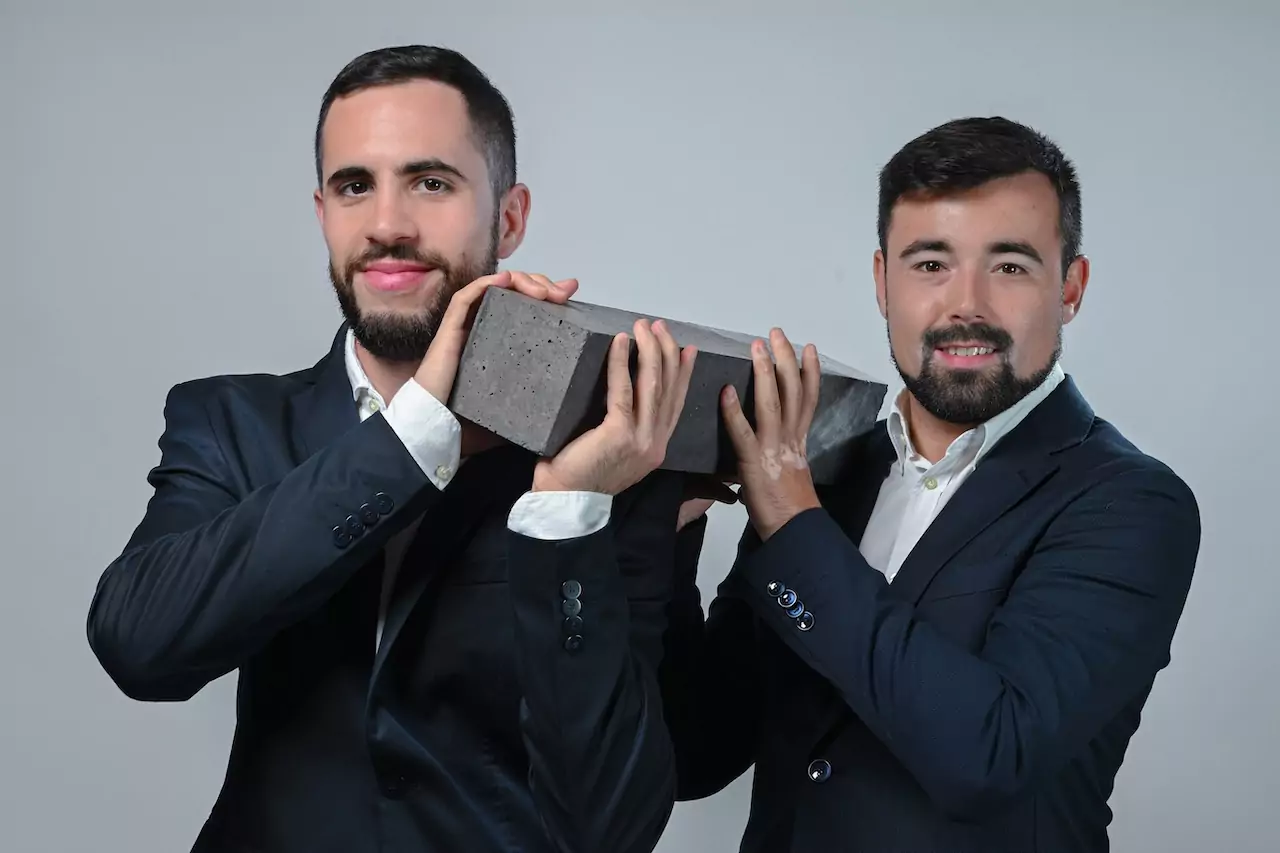The start-up Benewtral presents its innovative product destined to have an impact on the construction sector. Called Rebind, it is a material created using Benewtral’s proprietary technology. ReBind guarantees fire resistance, high mechanical performance, thermal stability and durability over time, thus maintaining levels comparable to traditional cement when used, for example, to produce concrete in terms of resistance to compression, carbonation and chlorides, with potentially superior durability. Furthermore, in terms of environmental impact, Rebind generates a reduction of up to 90% in CO2 equivalent per tonne of binder produced, a 98% reduction in the energy used in the production cycle per tonne of binder produced, the total elimination of mineral extraction from quarries thanks to the 70% of by-products that compose it, and a 93% reduction in water use per tonne of product. The production process, which is entirely cold-based and decentralised, using flexible, low-cost local micro-plants, further contributes to a significant reduction in CO2 emissions. Rebind has already obtained Remade in Italy certification (with Rina as external auditor).
The technology developed by BeNewtral has already been applied in various contexts. Among the main uses, which are continuously and rapidly expanding, is its application in the production of prefabricated elements and road regeneration, demonstrating the versatility and effectiveness of the material for non-structural uses.
The start-up promotes a new production paradigm that focuses not only on economic value, but also on environmental and social value, with the aim of overcoming the linear logic of extraction, consumption and disposal, replacing it with a circular regenerative model capable of giving new life to materials and building a fairer, more efficient and traceable production system.
“It is exciting to see the market’s growing interest in innovative solutions that combine high performance and environmental sustainability. For us, this is further confirmation that we are on the right track in helping to redefine the paradigms of the construction industry, which is still one of the main contributors to global environmental impact,” said Riccardo Frezzato, co-founder of Benewtral, in a statement. – We have found so much support around us: districts that reduce the time between idea and construction, entrepreneurs who provide machinery and technicians because they believe that doing is worth more than any pitch, and courageous investors. This is the ecosystem we are immersed in, thanks to which we are here today and can look to the future with great ambition.
“I am delighted to have been involved in the presentation of this innovative product because I fully understand the importance of the initiative and the challenge of innovation for decarbonisation, in which our nation is playing a decisive role in demonstrating that we have the energy, value and determination of our young entrepreneurs to write a new chapter in Italy’s history. This is why we are implementing a series of initiatives, including legislative ones, to simplify procedures and ensure that the state does not hinder progress,” says Senator Antonio Iannone, Undersecretary at the Ministry of Infrastructure and Transport.
“The constructive dialogue we are pursuing with various operators in the sector, including manufacturers, institutions and trade associations, shows that change in the construction industry is not only necessary but already underway,” adds Nicolò Verardi, co-founder of Benewtral (pictured with Frezzato). . “We are not alone. There are other young entrepreneurs around the world who are trying to innovate a sector that has been stagnant for 150 years, and I am certain that this movement is destined to grow. We are at a point of no return. Tests conducted in our laboratories and by various universities, as well as applications already implemented, demonstrate how Rebind can act as an innovative catalyst, integrating seamlessly with existing production processes, making them less impactful and generating greater value.”
ALL RIGHTS RESERVED ©
